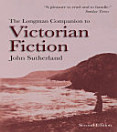Triggered Literature: Triggered Literature: Cancellation, Stealth Censorship and Cultural Warfare
Über dieses E-Book
Through dozens of case studies of triggered works, from Romeo and Juliet to Gender Queer, John Sutherland explores the recent phenomenon of triggering and its consequences for university English departments and literature itself. He maintains that what is routinely overlooked in the heat of polemic is that triggering is categorically different from traditional institutional (religious, educational, dictatorial) controls on literature. Triggering is in essence an alert. Done responsibly it does not erase or meddle; it stimulates curiosity and thought. It honours the fact that great literature is great because it is, as Franz Kafka says, powerful.
In this characteristically nuanced and calmly objective study, the witty literary critic guides us through the increasingly rocky terrain of triggering. His advice rings clear: literature matters, to us and what we make of our world, and it must be handled with critical care.
Autoren-Profil
Amid the flames of the culture wars, politicians have taken up arms over controls on literary culture, spurred on in part by universities ‘triggering’ canonical texts. Jonathan Swift’s ‘Battle of the Books’ has flared up again. But is ‘triggering’ utter wokery or responsible pedagogic practice? Through dozens of case studies of triggered works, from Romeo and Juliet to Gender Queer, John Sutherland explores the recent phenomenon of triggering and its future consequences for university English departments and literature itself. He maintains that what is routinely overlooked in the heat of polemic is that triggering is categorically different from traditional institutional (religious, educational, dictatorial) controls on literature. Triggering is in essence an alert. Done responsibly it does not erase or meddle; it stimulates curiosity and thought. It honours the fact that great literature is great because it is, as Franz Kafka says, powerful. In this characteristically nuanced and calmly objective study, the witty literary critic guides us through the increasingly rocky terrain of triggering. His advice rings clear: literature matters, to us and what we make of our world, and it must be handled with critical care. John Sutherland is a British academic, newspaper columnist and author. He is currently Emeritus Lord Northcliffe Professor of Modern English Literature at University College London. He has published more books than he cares to count, including Is Heathcliff a Murderer? Puzzles in Nineteenth-Century Fiction; The Boy Who Loved Books: A Memoir; and The Longman Companion to Victorian Fiction.







